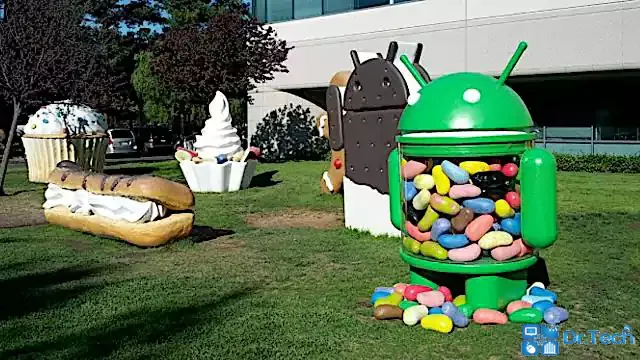
Google officially announces the end of Android Jelly Bean
Google officially announces the end of Android Jelly Bean While
manufacturers have abandoned very old hardware, Google has kept support
for Android versions going back nearly a decade, as long as there are
still enough users to justify the cost of maintenance.
The Android operating system is often criticized for its fragmentation. But
this fragmentation has beneficial side effects.
However, it appears that the end of the Android release of Jelly Bean has
come with Google announcing the discontinuation of support for Google Play
Services for devices still running the 2012 Android version.
Jelly Bean has more than one Android version with the same name, from
Android 4.1 to Android 4.3.
Jelly Bean came at a time when Android was still in a state of rapid
development. The releases don't seem to follow a regular rhythm.
Jelly Bean was also a very big release, introducing an improved Holo user
interface and many changes, such as Bluetooth Low Energy support.
Google revealed that Android 4.1 through Android 4.3 together now make up
less than 1 percent of active devices.
This gives it the freedom to drop support for Android API levels (16-18,
respectively).
It may surprise some to hear that Google Play Services still supports these
devices, thanks to the modular nature of Android.
The company said that the Android Jelly Bean platform was first launched 9
years ago. Android has since gotten a lot of improvements and features not
all ported to Jelly Bean.
"This increases developer time for new features that require special
handling," she added. Therefore, we are discontinuing support for Jelly Bean
in future versions of Google Play Services.
Google announces the end of Jelly Bean
Google Play's own services exist separately from the open source Android
platform, and the search giant can maintain support for older devices
separately, usually through compatibility libraries.
The company indicated that it will abandon support for devices running the
Jelly Bean version after version 21.30.99, which is scheduled for the end of
August 2021.
This does not mean that these devices stop working immediately. But you may
see some strange things happen, especially those that depend on Google Play
Services. And there's a chance that you won't be able to use the store
either.
App developers are advised to use Android API Level 19, also known as
Android 4.4 KitKat, as a minimum target version for their apps.
This means that apps that update to this will not be visible or installable
across devices that are still using Jelly Bean.
Developers have the option to continue with the release of APKs that target
these deprecated versions. But the company is hoping everyone will upgrade
to a supported Android version instead.
Comments
Post a Comment